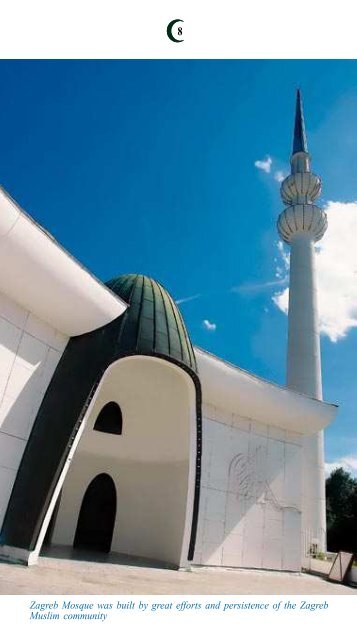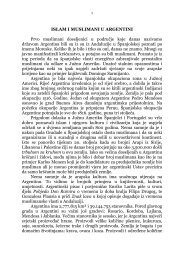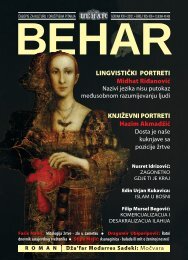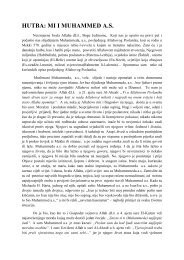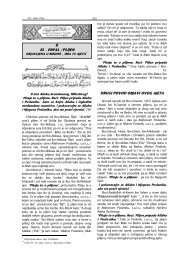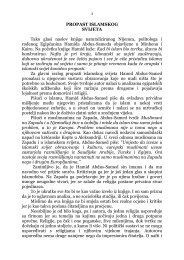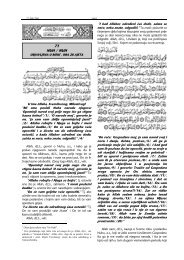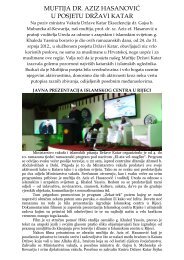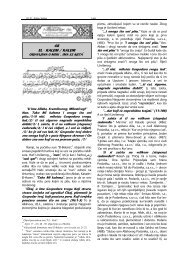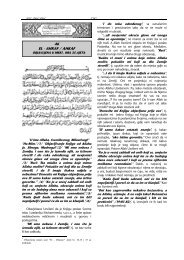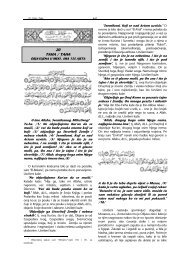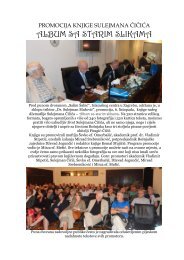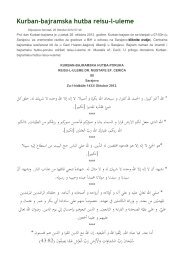ZAGREB MOSQUE - Islamska zajednica u Hrvatskoj
ZAGREB MOSQUE - Islamska zajednica u Hrvatskoj
ZAGREB MOSQUE - Islamska zajednica u Hrvatskoj
Create successful ePaper yourself
Turn your PDF publications into a flip-book with our unique Google optimized e-Paper software.
Zagreb Mosque was built by great efforts and persistence of the Zagreb<br />
Muslim community<br />
It is one of the landmarks of<br />
the modern quarter of the city,<br />
but also a sign of religious and<br />
cultural identity, and a symbol<br />
of the permanent presence of<br />
the oldest Muslim community<br />
in central Europe. According<br />
to the 2001 census, among<br />
4,437.460 inhabitants of the<br />
Republic of Croatia, there are<br />
56, 777 Muslims of various<br />
ethnic origin (Bosnian, Croat,<br />
Albanians, Romany and others),<br />
comprising 1.28% of<br />
population. After the Roman<br />
Catholics and Orthodox Christians,<br />
Muslims account for the<br />
third largest religious community.<br />
Almost a third of them<br />
live in Zagreb and are at the<br />
centre of Muslim religious,<br />
social, cultural and educational<br />
life in the Republic of Croatia.<br />
According to the same census,<br />
Zagreb has 779, 145 inhabitants,<br />
among whom are 16, 215<br />
Muslims, living throughout the<br />
city. Muslims comprise 2.08%<br />
of the city’s population, and<br />
are the second religious group<br />
after the Roman Catholics.<br />
Although this is a relatively<br />
small Islamic community, Islam<br />
is a traditional and native faith<br />
in the Republic of Croatia and<br />
in the City of Zagreb, practised<br />
The first Zagreb biography of the<br />
God’s envoy Mohamed a.s. from<br />
the 18 th century<br />
for centuries and enjoying a legal<br />
basis. City communal and<br />
fiscal sources record Muslims<br />
in Zagreb in the middle of the<br />
18 th century, when groups of<br />
Muslim merchants from Bosnia<br />
stayed in Zagreb doing<br />
business; they were attracted<br />
by trade privileges and the<br />
revival in trade after the very<br />
long wars between Christian<br />
Austria and the Muslim Ottoman<br />
Empire. The vicinity<br />
of Ottoman Bosnia incited a<br />
greater interest in Islam within<br />
the city’s intellectual and cultural<br />
circles. Thus, the Austrian


